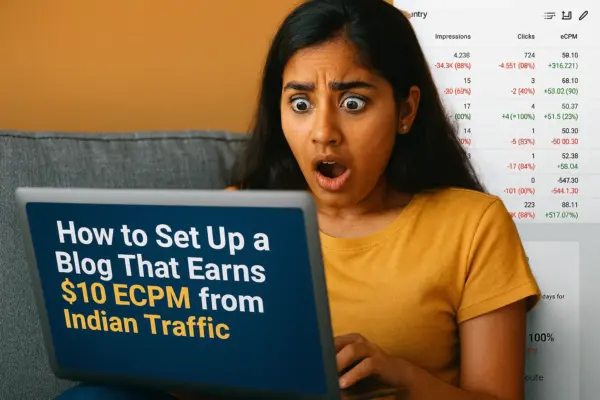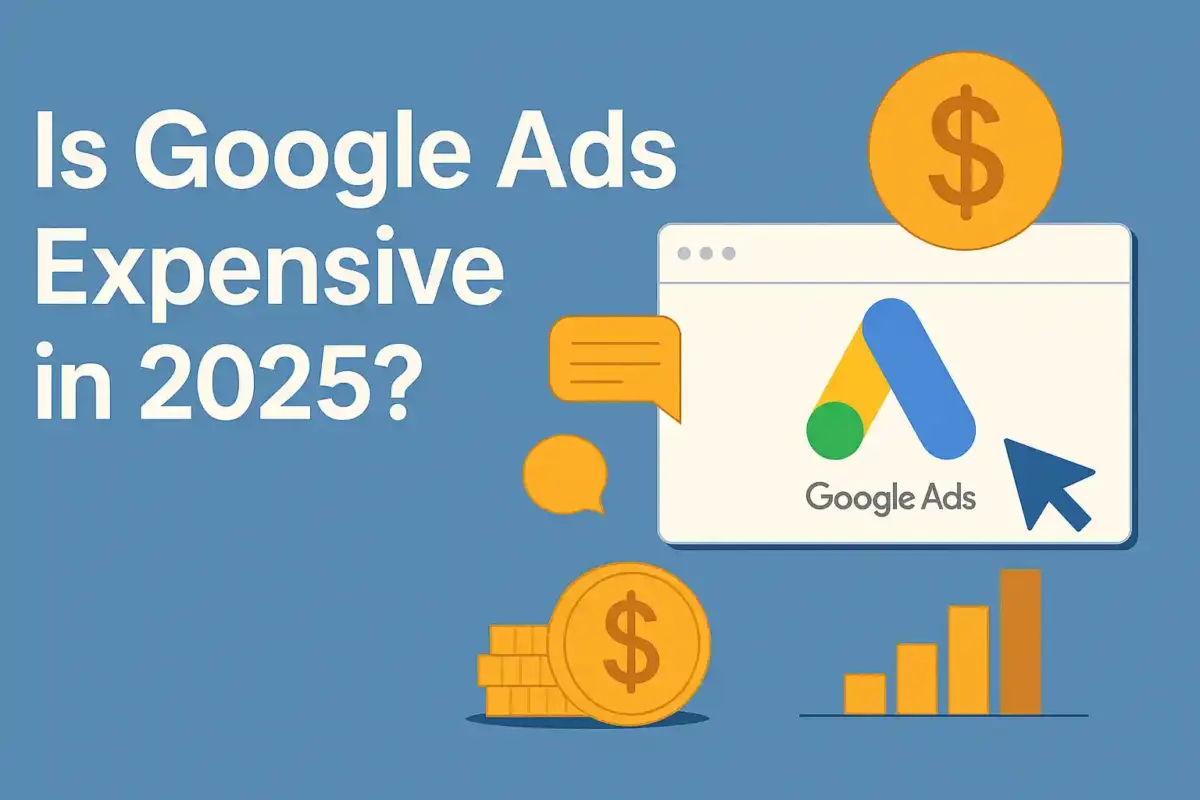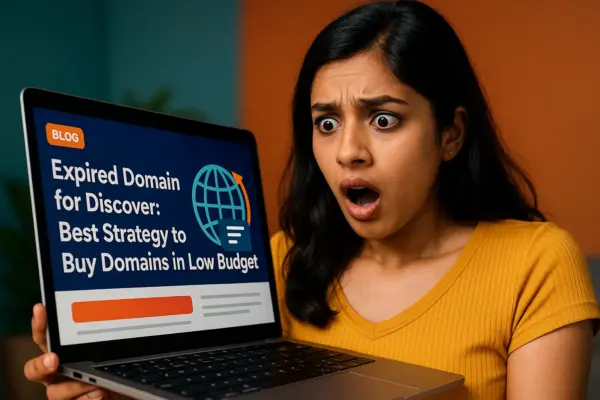In 2025, businesses across the world are investing more in Google Ads than ever before. With rising competition and smarter AI tools, the cost of running ads has changed—but so has the opportunity to grow. Whether you’re spending ₹5,000 or ₹5,00,000 per month, understanding how Google Ads pricing works is critical to making the most of your budget.
Let’s break down the current Google Ads cost, industry benchmarks, trends, and strategies to keep your ROI strong in 2025.
Average Google Ads CPC in 2025
According to fresh data from over 10,000 commercial-intent keywords, the average Cost Per Click (CPC) on Google Ads in 2025 is $4.51 (approx. ₹375). But that’s just the average. Actual costs vary wildly depending on your industry, location, keyword intent, and ad quality.
High-CPC Industries (USD)
| Industry |
Avg CPC (USD) |
| Legal Services |
$71.64 |
| Insurance |
$67.73 |
| Finance & Loans |
$60.00+ |
| B2B Software |
$50.00+ |
These industries have high lifetime customer value, which justifies the higher ad spend.
Mid to Low CPC Industries (USD)
| Industry |
Avg CPC (USD) |
| E-commerce |
$1.50 – $3.50 |
| Healthcare |
$3.00 – $6.00 |
| Home Services |
$4.00 – $8.00 |
| Education |
$1.00 – $2.50 |
Create bar chart visual showing industry-wise CPC comparison
What’s Driving Google Ads Costs in 2025?
Several key shifts have influenced CPCs this year:
1. AI Overviews in Search
AI-generated summaries are changing user behavior and competition. On high-commercial keywords, AI panels increase visibility but can also reduce click-through rates on traditional ads unless the ads are highly relevant.
2. Increased Intent-Based CPCs
Keywords that signal urgency or action—like “near me,” “emergency,” or “best price”—consistently drive higher CPCs due to stronger buyer intent.
3. Seasonal CPC Surges
Industries like HVAC, roofing, and tax services are seeing 2x–4x CPC spikes during peak seasons. Advertisers are advised to plan budget accordingly.
How Geography Impacts CPC
Even for the same keyword, location can massively alter CPC. Here’s how the keyword “Plumber” performs across cities in the US:
| City |
CPC (USD) |
Difference from Average |
| National Average |
$25.27 |
— |
| Denver |
$59.81 |
+137% |
| Seattle |
$25.10 |
~0% |
| Dallas |
$30.18 |
+19% |
| Birmingham, AL |
$15.53 |
−39% |
Local competition and demand are major factors here.
Actual CPC Paid by Businesses
Although some industries see CPCs over $100, most businesses don’t pay that much.
What Businesses Really Pay Per Click
| CPC Range (USD) |
% of Businesses |
| $0.11 – $0.50 |
38% |
| $0.51 – $2.00 |
29% |
| $2.01 – $10.00 |
15% |
| $10.01+ |
1% |
Most advertisers operate in less-competitive niches where they can pay less and still get results.
Monthly Ad Spend Distribution
Surveying 350 businesses showed the following spending habits:
| Monthly Budget (USD) |
% of Businesses |
| Under $5,000 |
26% |
| $5,001 – $10,000 |
27% |
| $10,001 – $50,000 |
18% |
| Over $50,000 |
29% |
Large businesses and agencies dominate higher budgets, but a large share of small businesses still achieve success with careful targeting.
Average Cost Per Lead by Industry
Your final CPL depends on your conversion rate and funnel efficiency. Here’s a benchmark:
| Industry |
Avg Cost Per Lead (USD) |
| Legal Services |
$300 – $1,000+ |
| Insurance |
$200 – $800 |
| SaaS & B2B |
$100 – $400 |
| Home Services |
$40 – $100 |
| Education |
$30 – $70 |
Create comparison graphic showing CPL ranges by industry
The 3-Layer Framework That Determines Google Ads Cost
Layer 1: Industry Baseline
Each industry has a default CPC floor based on customer value and competitive saturation.
Example: Personal injury lawyers pay over $130 CPC because one conversion may bring in tens of thousands in revenue.
Layer 2: Campaign Type
Campaign type plays a major role in costs:
-
Search Network Ads: High intent, higher CPC
-
Display Network Ads: Low intent, 30–50% cheaper
-
Performance Max: AI-driven, varies based on data
Layer 3: Quality Score & AI Optimization
Google uses your Quality Score to reward better-performing ads. High relevance, strong click-through rate, and a good landing page can lower your CPC dramatically—even beating competitors who bid more.
Visual idea: Triangle showing the 3-layer pricing framework
Budget Allocation Trends in 2025
According to survey data:
| PPC % of Marketing Budget |
% of Businesses |
| Under 5% |
11% |
| 6% – 25% |
36% |
| 26% – 50% |
21% |
| Over 50% |
32% |
Most successful businesses fall in the 15%–35% budget range, balancing PPC with SEO and social media.
Updated 70-20-10 Google Ads Budget Model
This modern framework helps businesses stay agile in 2025:
-
70% to core campaigns with proven keywords
-
20% to explore new keyword ideas, audience segments
-
10% to test bold strategies: AI ad formats, experimental creatives
Advanced Cost Optimization Strategies
Performance Max Campaigns
Advertisers using Performance Max report better ROI when they:
-
Feed AI with proven keywords and assets
-
Use Smart Bidding + broad match
-
Analyze search term reports for new keyword ideas
AI-Based Scheduling
AI can now detect patterns beyond manual settings:
-
Predict peak conversion hours
-
Auto-adjust bids during high-converting periods
-
Improve cross-device bidding accuracy
Geographic Arbitrage
Smart advertisers target low-CPC regions first and slowly scale into competitive cities. This allows early-stage ROI without high risk.
Example: Run ads in Birmingham ($15.53 CPC) before entering Denver ($59.81 CPC).
Proactive Negative Keyword Strategy
Advanced accounts now build extensive negative keyword lists before launching campaigns. This blocks irrelevant traffic and improves ad spend efficiency.
What the ROI Data Reveals
From the latest survey:
-
54% of businesses report being satisfied with PPC ROI
-
26% plan to increase spending in the next 6 months
-
Only 13% plan to reduce their budget
This proves that rising CPCs are not stopping growth—they’re motivating better strategies and smarter targeting.
Industry-Specific Trends to Watch
-
Legal & Insurance: CPCs remain sky-high but profitable
-
Home Services: Require seasonal strategy
-
B2B Software: Expensive but high LTV justifies cost
-
E-commerce: Competitive, success depends on conversion funnel
-
Healthcare: Moderate CPCs with strong niche opportunities
Final Thoughts
Google Ads in 2025 is not just more expensive—it’s more strategic. While some industries now see CPCs as high as $137, smart businesses are still winning by focusing on data, optimization, and niche targeting.
With tools like Performance Max, AI-based bid strategies, and precise geo-targeting, it’s possible to make every dollar count. Whether you’re running ads with ₹5,000 or ₹5,00,000, success comes down to understanding your cost per click, your customer value, and your conversion process.
If your system can turn a ₹300 click into a ₹10,000 customer, then you’re not spending—you’re investing.
Passionate about helping businesses grow online through effective digital marketing strategies,
SEO optimization, and modern web development solutions. With years of experience in the digital
landscape, we provide comprehensive services to boost your online presence and drive results.







